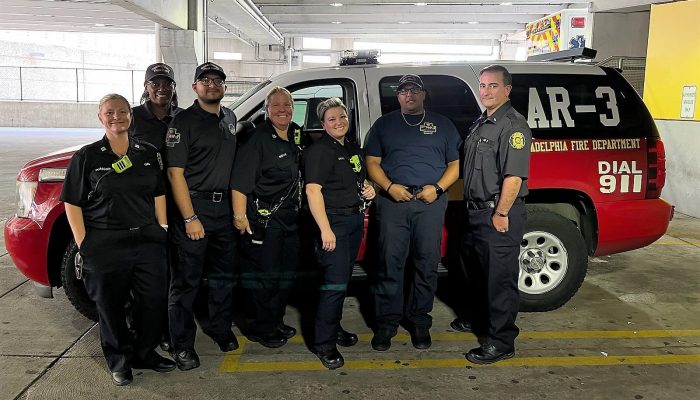Recently, the City of Philadelphia announced a series of operational reforms following the officer-involved shooting of Walter Wallace, Jr.
The Philadelphia Police Department (PPD) and the Department of Behavioral Health and Intellectual disAbility Services (DBHIDS) have been working on collaborative programs that were established prior to the shooting of Walter Wallace, Jr., and shared plans for expansion and acceleration of some programs.
Embed DBHIDS staff to monitor 911 calls to identify signs of a behavioral health crisis.
Since September 28, 2020, a DBHIDS behavioral health navigator has been stationed with staff in the police 9-1-1 radio room to learn about the types of calls received—gathering information to refine the model for behavioral health collaboration, determine the amount and type of support needed, assist in the development of a curriculum for training of call-takers, and help in the development of a script to support identification of crisis calls. The goal is to build a system that better identifies what calls may be behavioral health related and triaged differently.
Provide behavioral health screening questions for 911 call takers.
As of November 3, 2020, 911 call takers now have a methodology to better identify when calls are related to behavioral health crises. These additional questions are provided to dispatchers and officers responding in real-time. With these new screening policies, dispatchers will have the ability to gather more incident-specific information and will improve the way they dispatch officers and other first responders within the city.
Conduct a modified Crisis Intervention Team (CIT) class for 911 call takers and dispatchers.
Beginning the week of November 9, 2020, this class provides 911 call takers and dispatchers with training to identify crisis-related calls so that calls are more efficiently directed to CIT trained officers in the field. Additionally, PPD and DBHIDS will provide de-escalation training that can be used for both 911 call takers and dispatchers. The planning for this training has been underway since late August 2020.
Pilot four co-responder teams.
By January 2021, the City will pilot four co-responder teams, composed of CIT trained officers and mental health professionals contracted by DBHIDS, that will jointly respond to calls identified by Police Radio on a single shift. This ramp-up expands and accelerates implementation efforts that are already planned. PPD and DBHIDS have also developed a proposal to add more teams to build towards 24/7 coverage across the city by the end of 2021, based on information gathered in the pilot stage.
Expand CIT officer training.
Currently there are 3,100 CIT trained officers. 50 percent of PPD officers are CIT trained and are assigned throughout the city on all tours of duty. Philadelphia has made a significant investment in CIT officer training and is a national leader for having the largest cohort of CIT officers in a major city police department. The goal is to have all patrol officers receive CIT training.
De-Coupling CIT and Taser Training.
Prior PPD policy required officers to receive 40 hours of CIT training in addition to 8 hours of TASER training before issued a taser device. Due to the time constraints of CIT training as well as the limited number of class spots available, the PPD continues to expedite the availability of taser devices into the field through a de-coupling pilot program. Through this pilot, the last 4 Police Academy classes were issued tasers after receiving the 8 hours of required training. De-coupling CIT and Taser training will allow current PPD officers an expedited use of tasers and allow CIT training to be scheduled without delay.
Hold listening sessions with the community.
A series of listening sessions throughout the city will focus on grief, healing, and sharing. Future sessions will focus on the continued development of public safety and policing reforms. The Pathways to Reform, Transformation, and Reconciliation Community Engagement Series will hold its first digital session, Circles of Truths, in late November. Elected officials, PC Outlaw, DBHIDS leadership, a group of officers, and trauma-informed staff will participate. The Pathways Committee supports the city in strengthening relationships with communities through transparency and accountability. Sign up for newsletter updates here.



